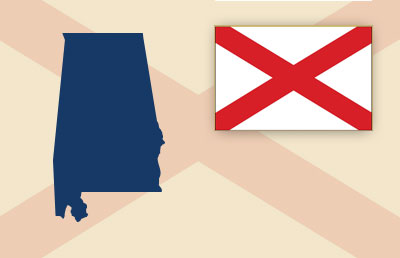Alabama Fiduciary Access to Digital Assets Act

Effective January 1, 2018, Alabama has enacted the Revised Uniform Fiduciary Access to Digital Assets Act as Chapter 1A of Title 19, Code of Alabama 1975. The Act allows a fiduciary acting under a will or power of attorney, a personal representative of a decedent, a conservator, or a trustee of a trust to compel disclosure of a digital asset from a custodian who stores the digital assets of a user. The Act only applies to a custodian if the user resides in the state of Alabama or resided in the state of Alabama at the time of the user’s death. The Act does not apply to the digital assets of an employer used by an employee in the ordinary course of business.
User Direction for Disclosure of Digital Assets
A user may utilize one of two methods to direct the disclosure of digital assets. The user may use an online tool provided by the custodian which allows the user to direct disclosure to a designated recipient. If this tool allows the user to modify or delete direction at any time, then the directions on the online tool overrides any contrary direction in a will, trust, power of attorney or other instrument. In the case where the custodian does not provide such a method to direct disclosure or a user does not utilize the tool, then the user may authorize disclosure in a will, trust, power of attorney or other instrument.
Disclosure of Content of Electronic Communication
If a deceased user has consented to disclosure or a court directs disclosure of digital assets, the Custodian has 60 days from the receipt of the required documents from the personal representative to disclose the digital assets or terminate an account. The documents required to be provided to the Custodian include a written request for disclosure, a certified copy of the death certificate, or a certified copy of the letter of appointment. Failure of the Custodian to comply will allow the fiduciary or designated recipient to apply for a court order directing compliance.
Likewise, a party acting under a power of attorney, a trustee of a trust, or a conservator may obtain the digital assets of a user by providing the custodian with proper documentation, as outlined in the Act that shows the consent of the user and the authority of the party requesting the information.
Procedure for Disclosing Digital Assets
When a custodian must disclose digital assets, the custodian has the discretion to:
- Grant a fiduciary or designated recipient full access to the user’s account;
- Grant a fiduciary or designated recipient partial access to the user’s account sufficient to perform the tasks with which the fiduciary or designated recipient is charged; or
- Provide a fiduciary or designated recipient a copy of a record of any digital asset that, on the date the custodian received the request for disclosure, the user could have accessed if the user were alive and had full capacity and access to the account.
Custodian Compliance and Immunity
The Act does not prevent a custodian from obtaining, or requiring a fiduciary or designated recipient to obtain, a court order that specifies that an account belongs to the user and specifies that there is sufficient consent by the user to the disclosure. In addition, the Act provides immunity from liability to the custodian, its officers, employees and agents for any good faith act or omission done in compliance with the Act.
The full text of the Act may be found at: https://legiscan.com/AL/text/HB138/2017
Adam Faria, JD, is a regulatory compliance consultant with CLA. He is a graduate of Northeastern University and earned his juris doctor at Suffolk University Law School. He is admitted to the bar in Massachusetts and New Hampshire.

Comments are closed.